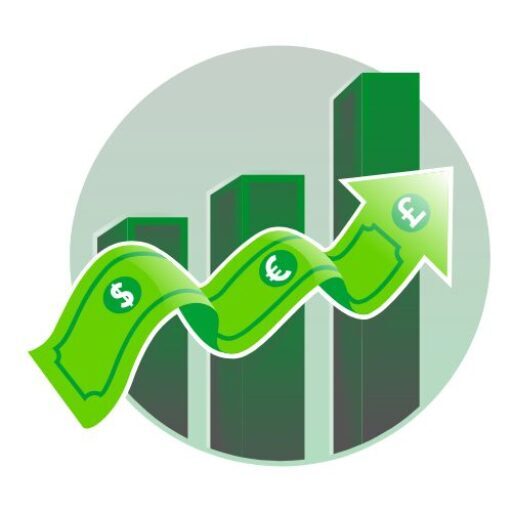Debt often carries a negative connotation, associating it with financial distress or poor decision-making. In the South African region, the topic of debt presents a complex picture influenced by various economic factors. However, it is essential to understand that not all debt is detrimental. In fact, some forms of debt can serve as valuable tools for financial growth and stability.
Many individuals overlook the concept of “good debt,” which refers to borrowing that can lead to an increase in net worth over time. Understanding the categories of good and bad debt can significantly impact financial decisions. This article will explore how debt can be beneficial, the circumstances under which it makes sense, and how to manage it wisely.
In a region where education and housing are critical components of economic mobility, recognizing the value of good debt can empower individuals to make informed financial choices. It’s about transforming the way we perceive borrowing and its role in personal growth.
Understanding Good Debt
Good debt is defined as borrowing that is expected to generate long-term income or value. This typically includes loans for education, mortgages, or business purposes. The premise lies in the investment aspect of these debts.
When used wisely, good debt can pave the way for financial stability. For instance, student loans can enable an individual to gain qualifications that lead to better job opportunities. Hence, the initial financial burden often translates into higher earning potential.
Similarly, purchasing a home could serve as a significant investment. With property values anticipated to appreciate over time, a mortgage can lead to equity accumulation. Thus, it can be viewed as a stepping stone toward wealth creation.
However, it’s crucial to distinguish good debt from bad debt. Bad debt typically involves borrowing for consumables or depreciating assets. In contrast, good debt is an investment in one’s future, making it a vital concept to grasp.
Understanding good debt also includes knowing when and how much to borrow. Making calculated decisions regarding financial obligations is essential to prevent falling into debt traps that can lead to financial ruin.
Common Types of Good Debt
Several forms of good debt exist, primarily encompassing student loans, mortgages, and small business loans. Each of these categories serves a specific purpose aimed at enriching one’s financial situation over time.
Student loans allow individuals to invest in their education, leading to higher earning potential. The return on investment in education can be significant, further enhancing career prospects in South Africa.
Mortgages represent another form of good debt. Investing in property can create future wealth, offering stability and shelter. The appreciation of real estate over time can contribute to overall net worth.
Small business loans also qualify as good debt. Financing a startup can lead to income generation and job creation, benefiting the economy as a whole. Balancing business loans with a solid plan ensures financial growth.
In conclusion, recognizing different types of good debt is essential for making informed decisions. Being aware of how these borrowing options can benefit your financial situation is a key step towards stability.
The Importance of Purposeful Borrowing
Purposeful borrowing implies taking on debt with clear, defined objectives. This strategic approach to debt ensures that you are utilizing borrowed funds to attain specific goals. Understanding the purpose behind your borrowing can mitigate risks.
Before taking on any debt, it’s essential to consider the long-term impact. This includes evaluating your ability to repay the borrowed amount and how it contributes to your financial growth. Aligning your debt with your financial goals is critical.
For instance, if you are borrowing for educational purposes, it’s important to have a realistic repayment plan. A well-thought-out budget can help ensure you can meet your obligations while still being able to invest in your future.
Similarly, if you’re considering a mortgage, assess the cost of homeownership beyond just the mortgage payment. This includes maintenance, taxes, and insurance costs, which should align with your overall financial strategy.
Effectively borrowing with purpose creates a roadmap for financial success. By defining objectives clearly, individuals can navigate the complexities of debt while minimizing the potential pitfalls.
Managing Debt Responsibly
Responsible debt management is crucial for maintaining financial health. Effective budgeting is one of the key strategies to ensure that your debt remains manageable. A well-structured budget helps keep spending aligned with income.
It’s also essential to monitor your debt-to-income ratio regularly. This ratio provides insights into how much of your income goes toward debt repayment. Keeping this ratio low is beneficial for your financial stability.
Additionally, making timely payments is vital. Late payments can damage your credit score and lead to higher interest rates in the future. Staying disciplined with payments bolsters your financial credibility.
Furthermore, consider consolidating high-interest debts into lower-interest options. Debt consolidation can make repayments more manageable and reduce overall interest expenses. This strategy allows for quicker debt payoff and less financial stress.
Ultimately, managing your debt responsibly ensures that even good debt remains a positive force in your financial life. Implementing effective strategies to handle debt can lead to a secure and prosperous future.
Creating a Sound Financial Plan
A sound financial plan serves as a blueprint for managing debt effectively. Establishing clear financial goals provides direction and purpose for both short-term and long-term planning. Your goals should be specific, measurable, achievable, relevant, and time-bound.
Your financial plan should also include an emergency fund, which aids in unexpected financial setbacks. Having a safety net reduces the risk of falling into high-interest debt during emergencies.
Moreover, regular reviews of your financial plan ensure that you stay on track. As circumstances change, so too should your financial strategies. Continuous assessment allows you to adjust as needed.
Additionally, seek guidance from financial advisors if necessary. Professional advice can provide insights into planning effectively and maximizing the advantages of good debt.
In conclusion, crafting a solid financial plan can empower you to manage your debt wisely. By setting goals and regularly evaluating your progress, you create a pathway to financial success.
Conclusion: Embracing Good Debt for Future Growth
In summary, understanding and embracing good debt can lead to personal and financial growth. Borrowing should not be viewed solely as a burden but as a potential investment in your future. By distinguishing between good and bad debt, you empower yourself to make sound financial decisions.
With strategic borrowing approaches, effective debt management, and a well-structured financial plan, individuals can harness the power of good debt effectively. Investing in education, property, and businesses can lead to significant returns in both personal and economic prosperity.
Ultimately, recognizing the value of purposeful borrowing and management strategies will enable individuals in South Africa to create a secure financial future. Embrace the concept of good debt and watch opportunities unfold.

